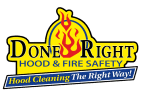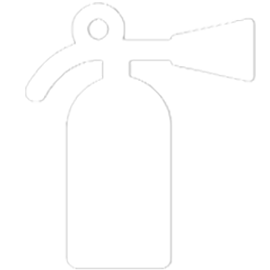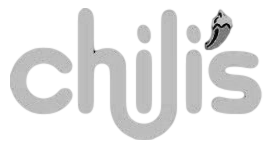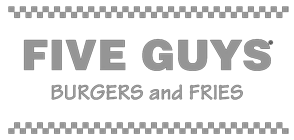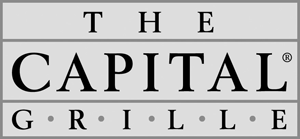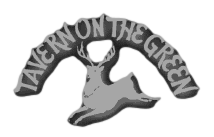Winter weather has the potential to bring a unique set of hazards that can pose serious threats to restaurant operations. As temperatures drop, it’s critical that restaurant owners and managers be aware of the winter restaurant fire safety protocols, remaining diligent against seasonal risks that can compromise safety and efficiency.
During winter months, hardened grease buildup in exhaust systems significantly increases fire hazards, while cold conditions can reduce the effectiveness of grease traps, leading to costly plumbing issues and potential health code violations. Additionally, freezing temperatures can impact fire suppression systems, causing critical components to seize or malfunction—jeopardizing a restaurant’s ability to respond to emergencies. To avoid these dangers, proactive maintenance and regular inspections are essential for ensuring smooth operations and compliance throughout the colder months.
Understanding Winter Restaurant Fire Safety
As temperatures drop, the risk of grease accumulating in restaurant exhaust systems and pipes increases, heightening the chance of fire hazards and potential compliance issues. When grease cools, it hardens and adheres more stubbornly to the interior surfaces of ducts, fans, and hood filters, reducing airflow efficiency and creating a significant fire hazard. If not properly cleaned and maintained, this buildup can ignite under high-heat cooking conditions, putting both staff and customers at risk.
Beyond winter restaurant fire safety concerns, hardened grease can also lead to fire code and health code violations, which can result in substantial fines and even forced closures if left unaddressed. Additionally, cold weather can impact the performance of grease traps, causing fats, oils, and grease (FOG) to solidify more quickly. This can lead to clogs, overflows, and backups that not only disrupt kitchen operations but also result in costly plumbing repairs and potential environmental penalties.
Neglecting these critical systems doesn’t just threaten the safety of an establishment—it can also have severe financial and reputational consequences. Proactive maintenance, including regular exhaust system cleanings and grease trap servicing, is essential to ensuring a safe, compliant, and smoothly operating commercial kitchen throughout the colder months.
Increased Grease Buildup in Restaurant Hoods and Exhaust
Restaurant owners must be especially vigilant during the winter months, as cold temperatures can worsen the challenges posed by grease buildup in hoods and exhaust systems. As grease cools, it solidifies and accumulates more stubbornly, leading to clogs that become increasingly difficult to remove. If left unchecked, this buildup not only compromises ventilation efficiency but also significantly raises the risk of fire and costly compliance violations.
One of the most severe winter restaurant fire safety dangers associated with neglected grease accumulation is its potential to ignite, which can result in devastating fires. With grease hardening inside the system, even a small spark—whether from cooking equipment, electrical malfunctions, or high heat exposure—can cause a fire to erupt. Once ignited, grease burns intensely and can quickly spread through ductwork, endangering lives and causing extensive property damage.
Commercial kitchens are already among the most fire-prone environments in commercial buildings, and accumulated grease acts as a dangerous fuel source in such situations. The intense heat generated during cooking operations can easily trigger a blaze, turning a preventable issue into a full-scale emergency. The consequences of such a fire can be catastrophic, leading to business closures, severe financial losses, and long-term damage to a restaurant’s reputation. To protect their business, employees, and customers, restaurant owners must take proactive measures by ensuring regular restaurant exhaust system cleanings and adhering to strict fire safety protocols.
Reduced Ventilation Efficiency
Many restaurant owners underestimate how winter weather affects their kitchen ventilation systems. As temperatures drop, ventilation efficiency can decline, leading to reduced airflow throughout the kitchen. This issue not only slows the removal of heat, smoke, and odors but also contributes to grease buildup, creating a heightened risk of fire. A compromised ventilation system allows grease particles to accumulate within ducts, hoods, and fans, increasing the likelihood of dangerous flare-ups and costly compliance violations.
Effects of Cold Air on Airflow
Cold air is denser than warm air, making it more difficult for exhaust systems to expel smoke, grease-laden vapors, and other contaminants effectively. This restricted airflow can cause airborne grease to linger longer in the kitchen, settling onto surfaces and further embedding within ductwork. Additionally, inefficient exhaust performance may result in hazardous fume accumulation, creating a serious health risk for kitchen staff. If ventilation struggles to keep up, carbon monoxide and other harmful gases can build up, leading to dangerous working conditions and potential regulatory penalties.
Consequences of Poor Ventilation in Kitchens
Inadequate ventilation presents a range of operational challenges. Without sufficient airflow, restaurant kitchens can experience excessive heat, unpleasant odors, and a decline in indoor air quality—all of which can negatively impact staff performance and comfort. Prolonged exposure to poor air conditions may also lead to respiratory issues, headaches, and increased fatigue among employees, potentially resulting in staffing issues and liability concerns for restaurant owners.
Frozen or Malfunctioning Fire Suppression Systems
Winter weather poses unique challenges for fire suppression systems in restaurants, increasing the risk of freezing or malfunctions. As temperatures drop, critical components—such as pipes, nozzles, and valves—can become frozen or clogged, compromising the system’s ability to function properly in an emergency. If a fire suppression system fails to activate when needed, it not only endangers lives and property but also exposes restaurant owners to severe fines, insurance complications, and potential shutdowns due to fire code violations.
Risks of Freezing and System Malfunctions
Fire suppression systems rely on pressurized chemicals and mechanical components that must function seamlessly when triggered. However, freezing temperatures can disrupt these mechanisms, causing valves to seize, pressure levels to drop, and suppression agents to become less effective. In the worst cases, ice buildup can prevent the system from activating altogether, leading to a fire spreading unchecked. Even minor malfunctions can have devastating consequences, potentially resulting in extensive property damage, injuries, or loss of life.
Neglecting fire suppression maintenance in colder months significantly increases the risk of failure at the worst possible moment. If an inspection reveals a non-operational system, business owners may face heavy fines, forced closures, or even legal liability for non-compliance. Regular monitoring is crucial to ensuring that fire suppression systems remain operational and reliable in freezing conditions.
Preventative Maintenance and Regular Inspections
Proactive maintenance is the best defense against winter-related fire suppression failures. Restaurant owners should schedule frequent inspections, particularly before the onset of cold weather, to identify vulnerabilities such as frozen components, pressure inconsistencies, or clogged nozzles. Routine servicing ensures that systems remain functional and ready to respond in an emergency.
A well-maintained fire suppression system is not just a regulatory requirement—it’s a crucial safeguard for employees, customers, and the business itself. Implementing a winter-specific maintenance plan that includes insulation, pressure checks, and regular testing can prevent costly breakdowns and enhance overall fire safety. By prioritizing these inspections, restaurant operators can ensure their fire suppression systems are fully operational, reducing the risk of catastrophic failures and maintaining a safe working environment.
How Winter Weather Impacts Grease Traps in Commercial Kitchens
Winter weather can significantly disrupt the efficiency of grease traps in commercial kitchens, leading to operational challenges that impact both compliance and business continuity. As temperatures drop, grease separation becomes less effective, increasing the risk of plumbing issues, health code violations, and expensive repairs. Without proper maintenance, grease traps can quickly become overwhelmed, leading to costly downtime and potential regulatory fines.
Grease Solidifies Faster in Cold Temperatures
One of the biggest challenges posed by winter weather is the rapid solidification of grease within traps. Cold temperatures cause fats, oils, and grease (FOG) to harden much faster, making it more difficult for grease traps to effectively separate and capture these substances. When grease solidifies too quickly, it accumulates within the trap instead of being properly filtered, leading to blockages that compromise kitchen operations and increase the risk of non-compliance with health regulations.
Increased Risk of Clogs and Backups
Faster grease solidification significantly raises the likelihood of clogs and backups in plumbing systems. As grease hardens, it can create stubborn blockages that restrict wastewater flow, leading to overflows, unpleasant odors, and costly emergency repairs. In extreme cases, a clogged grease trap can cause a total system failure, forcing a restaurant to halt operations until the issue is resolved.
For instance, a commercial kitchen operating in freezing temperatures may experience an unexpected grease backup, causing wastewater to overflow into the kitchen and creating both safety hazards and sanitation violations. This type of disruption not only affects service but can also result in hefty fines and damage to the restaurant’s reputation. Proactive maintenance is key to avoiding these winter-related complications.
Effective Grease Trap Maintenance
Regular grease trap maintenance is essential during the winter months when grease solidifies at an accelerated rate. Increasing the frequency of inspections and cleanings can help prevent major blockages and ensure continued compliance with health and safety regulations.
Industry experts recommend that restaurant owners schedule grease trap cleanings more often in cold weather to mitigate the risks associated with grease buildup. Routine servicing helps remove solidified grease before it causes plumbing failures, keeping kitchen operations running smoothly and reducing the likelihood of costly fines. By staying ahead of seasonal challenges, restaurant operators can protect their business, maintain compliance, and avoid unnecessary disruptions during the busiest months of the year.
Case Studies: Restaurants Impacted by Winter Hazards
All restaurants face increased challenges during winter months, particularly those with inadequate maintenance of their grease systems and exhaust systems. Below are notable case studies reflecting how winter weather has impacted various establishments:
Angelo’s in Little Italy (February 2018):
In February 2018, a significant fire occurred at Angelo’s of Mulberry Street, a historic restaurant in Manhattan’s Little Italy. The blaze ignited around 7:30 a.m. at 146 Mulberry Street, affecting the restaurant and the five-story residential building above it.
Bryant Park Winter Village Fire (December 27, 2024):
A significant fire erupted at the Bryant Park Winter Village holiday market, destroying three food vendor booths and causing minor damage to adjacent structures, including the ice-skating rink’s roof.
Empire Diner Fire (January 2025):
In early January 2025, a fire broke out at the historic Empire Diner in Manhattan’s Chelsea neighborhood. Flames were seen emanating from the diner’s roof, leading to significant damage.
Wrapping Up
Winter weather presents unique challenges for restaurants and commercial kitchens, increasing the risk of fire hazards, ventilation inefficiencies, and grease trap malfunctions. As temperatures drop, grease hardens more quickly in exhaust systems and plumbing, leading to dangerous buildups that can compromise both safety and compliance. Neglecting these risks and failing to maintain a clear focus on winter restaurant fire safety can result in costly fines, operational disruptions, and even catastrophic fires.
To ensure a safe and efficient kitchen during the colder months, restaurant owners must take a proactive approach to maintenance. Regular inspections, frequent cleanings, and adherence to seasonal health codes are essential for preventing grease-related issues and maintaining compliance. By staying ahead of potential hazards, restaurant operators can protect their business, staff, and customers—ensuring smooth operations throughout the winter season.
